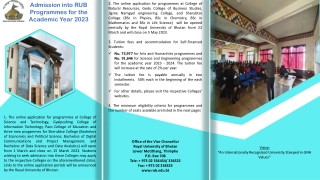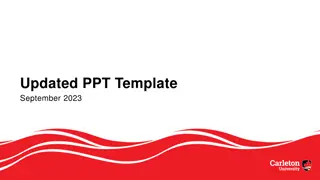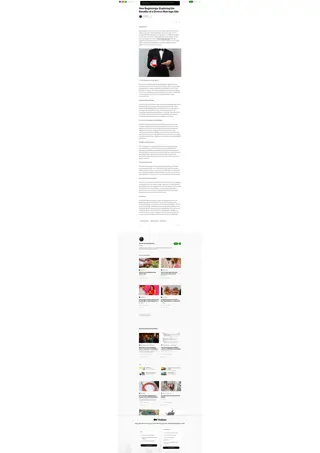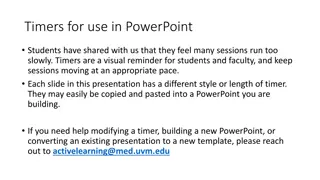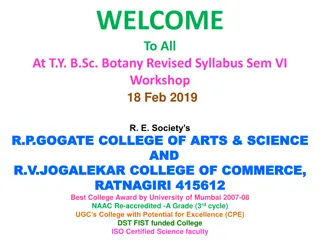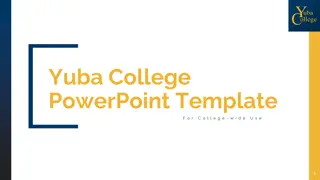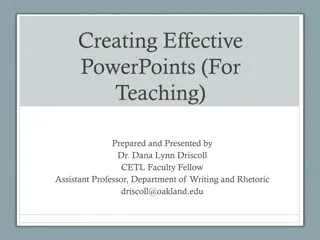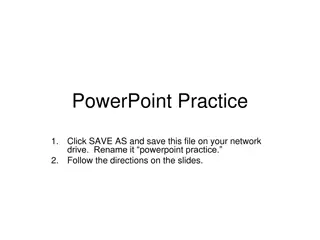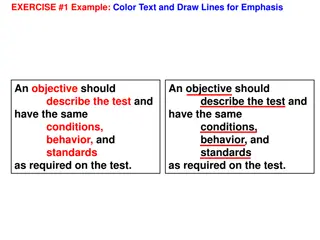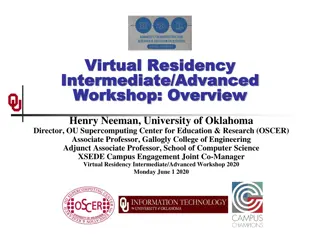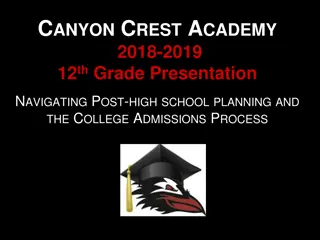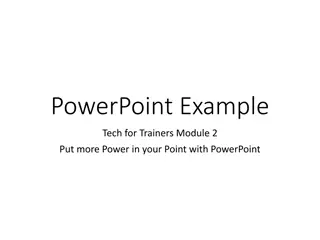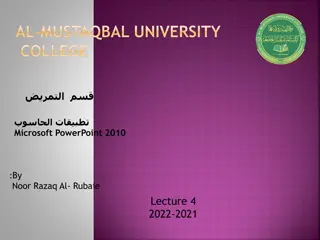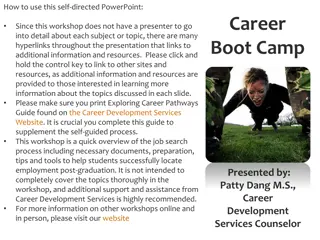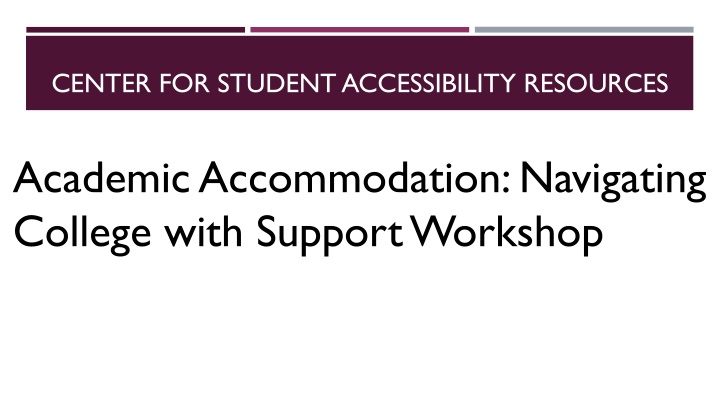
College Accessibility Resources: Academic Accommodations & Legal Framework
Discover how academic accommodations support students with disabilities in college, from legal frameworks to confidentiality. Learn about the purpose of accommodations, the legal rights of students, and the importance of confidentiality under FERPA and ADA regulations.
Download Presentation

Please find below an Image/Link to download the presentation.
The content on the website is provided AS IS for your information and personal use only. It may not be sold, licensed, or shared on other websites without obtaining consent from the author. If you encounter any issues during the download, it is possible that the publisher has removed the file from their server.
You are allowed to download the files provided on this website for personal or commercial use, subject to the condition that they are used lawfully. All files are the property of their respective owners.
The content on the website is provided AS IS for your information and personal use only. It may not be sold, licensed, or shared on other websites without obtaining consent from the author.
E N D
Presentation Transcript
CENTER FOR STUDENT ACCESSIBILITY RESOURCES Academic Accommodation: Navigating College with Support Workshop
WORKSHOP OBJECTIVES Understand the Purpose of Academic Accommodations Learn the Legal Framework Navigate NLU Accommodations Request/Approval Process Incoming Freshmen High School Vs. College Self-Advocacy Explore Assistive Technologies/Tools Ask your accommodations questions
PURPOSE OF ACADEMIC ACCOMMODATIONS As a starting point, here are a few things to know about accommodations: As a starting point, here are a few things to know about accommodations: 1. Provide students with disabilities with equal access to course instruction, materials, and evaluation 2. Level the playing field by reducing/eliminating barriers caused by the interaction between a student s disability and the learning environment. 3. Do not guarantee student success and do not provide an unfair advantage 4. Must be reasonable and cannot alter the essential requirements of a course or program Resource: The Basics: Providing Accommodations - Disability and Access (utexas.edu)
LEARN THE LEGAL FRAMEWORK A student with a disability has the right to obtain timely and reasonable accommodations for their disability to have the same opportunity for success enjoyed by students who do not have a disability. Under the Rehabilitation Act of 1973: No otherwise qualified person with a disability in the United States shall, solely by reason of disability, be denied the benefits of, be excluded from participation in, or be subjected to discrimination under any program or activity receiving federal financial assistance. The Americans with Disabilities Amendment Act (2008) defines a person with a disability as having: A physical or mental impairment that substantially limits one or more major life activities; A record of such an impairment; or Being regarded as having such impairment.
IS MY INFORMATION CONFIDENTIAL? Yes, The Family Educational Rights and Privacy Act of 1974 (FERPA) and the Americans with Disabilities Act (ADA) do not allow faculty or others access to disability-related information (ex., diagnosis, medications). Whenever possible, faculty and staff may only be aware of a student's accommodations and will not be given confidential details of a student's disability and symptoms. However, there are occasional instances where the nature of the disability must be disclosed to faculty to facilitate an accommodation. For example, a student who requires a Seizure Safety Plan on campus must have their faculty and campus security informed so that campus personnel can provide student safety during a seizure. We can t discuss anything with your family without your approval. Students can choose to disclose information to faculty independently if they wish. Still, they should not be asked by faculty, staff, or administration about the exact nature or diagnosis of their condition or documentation.
CENTER FOR STUDENT ACCESSIBILITY RESOURCES Who can tell what they think this image means?
CENTER FOR STUDENT ACCESSIBILITY RESOURCES 1. Visual 2. Hearing 3. Physical 4. Cognitive
NAVIGATE NLU ACCOMMODATIONS REQUEST/APPROVAL PROCESS
WHAT IS C.S.A.R? Center for Student Accessibility Resources is committed to providing inclusion, accessibility, and equal opportunity for ALL students. Enhance equity and provide a platform for innovation and inclusion. We provide accommodation and assistive technology that enable students to access academic success.
WHO DO WE ASSIST? WE PROVIDE ACCESS NEEDS TO ALL STUDENTS AND SPECIALIZED SERVICES WITH IEPS OR 504 PLANS.
MEET THE TEAM: Vez Osmani- She. Her ( TJ Martin ) Andrea Shaw- She, Her Director of Access and Campus Resources Student Affairs Specialist Phone Number: 312-261-3488 Phone Number: 312-261-3742 Email: vosmani@nl.edu Email: ashaw6@nl.edu Location: 122 S. Michigan Ave Location: 122 S. Michigan Ave Room 5045 Room 5044-B ( Veteran s Center) Hours: 8:00-4:00 P.M Hours: 9:00-5:00 P.M Graduate, Veteran's, P.A.C.E Undergraduate, Kendall
COMMON DISABILITIES Learning and developmental (e.g., ADHD, dyslexia, autism) Access to class slides and recordings, text-to-speech software Psychological (e.g., depression, anxiety, PTSD) Extra time on exams and assignments Communication/speech Alternative format assignments Physical Accessible classrooms, ergonomic seating, voice dictation software Hearing ASL interpreter services, Zoom captions, written instructions Visual Alternative format textbooks, enlarged print course materials, text-to-speech software Other medical (e.g., migraines, seizures, sleep disorders, COVID) Excused absences, extra time on exams and assignments
WHAT ARE REASONABLE ACCOMMODATIONS? Reasonable accommodations: Adjustments to policy, practice, and programs that will provide equal access to students with disabilities. Accommodations can t significantly alter fundamental course goals or academic rigor. Some examples of reasonable accommodations: Exam accommodations include extended time, a separate testing room, readers or text-to-speech for exams, etc. Extended time for assignments: Students must communicate with faculty to advocate using their extensions.. Note-taking assistance: Glean note-taking software,advanced access to lecture slides and materials, video recording of lectures Assistive technology: Natural reader: text-to-speech software that converts text into audio, voice typing software, etc. ( CSAR will also order any technology needed to support student needs)
WHAT SERVICES ARE AVAILABLE? Course Exam Accommodations Extended Time on Assignments Recording Class Lectures Alternative Format Textbooks Flexibility in Course Attendance Policy American Sign Language Interpreting Services Alternative Classroom Furniture Temporary Accommodations ( ex. pregnancy ) Religious Accommodations
WHEN SHOULD I APPLY? At least 3-4 weeks before the beginning of the term Accommodations will not be approved two weeks before the end of the term Please allow up to two weeks to complete the approval process and letters to be sent to your faculty We will always communicate with you through your school email
DOCUMENTATION REQUIRED FOR ACCOMMODATIONS Students can provide an IEP or 504 plan Medical documentation stating diagnosis and signed by a medical professional Doctor Therapist Counselor Students have 30 days to get all documents in; temporary accommodations will be provided.
HOW DO I APPLY? Steps 1. Fill out the Initial Request for Accommodations Add supporting documentation 30 days to submit Schedule a consultation Approved Accommodation Letter 2. 3. 4. This QR Code will take you directly to our page:
HIGH-SCHOOL VS. COLLEGE High- School College Parents can t coordinate your accommodations with NLU staff and professors on your behalf. In college, you are your primary self-advocate! Parents aren t always involved; if a parent wants to be involved, the student signs a consent form, which must be signed by the student at the Center for Student Accessibility Resources office. Colleges do not provide 1-on-1 classroom aids, but you can access tutors, counselors, and Center for Student Accessibility Resources. Parents/teachers can coordinate your accommodations Classroom Aides Students can be placed in self-contained classes if the need shown in the IEP Most of the work is done in class
HIGH-SCHOOL VS. COLLEGE Higher More Studying Less Academic performance Time to prepare for great clarification on courses Amounts of information from courses Homework/Labs/Tests Grades that have higher assignment points Organizational skills Tutoring 1:1 support from an assigned teacher or aide Comprehension Self-Advocacy School managing your attendance Reading textbooks from multiple classes Time Management Daily reminders of obligations Self- Accountability Note-Taking
WHAT YEAR WAS THE FIRST IEP WRITTEN? 1. 1990 2.2005 3.1975 4.2008 Answer: 1975 (The Education for All Handicapped Children Act required all public schools accepting federal funding to provide equal access to education.
COMMUNICATION WITH FACULTY Strongly recommended that the student discuss their accommodation letter with faculty during week 1 of classes. Communication can be verbal, but we encourage sending an email confirmation regarding your conversation. For example, Thank you for meeting with me today, I wanted to send a follow-up email of our conversation. We agreed that I could submit my assignments two days after the due date using my approved accommodation for extended time on assignments. Communication between faculty and students is vital for accommodations and advocating for yourself.
SOFTWARE Glean Features Remote/In-Person Quiz ME Feature Transcript of Recording Organize Note Import Lecture Slides Available on Mobile, Tablet, and desktop Print Dark Mode/Light Mode Focus Timer
NATURAL READER NaturalReader converts any text, PDF, image, webpage and physical book into natural-sounding audio featuring the newest and highest AI voice technology Create your own AI voice, ready to read in over 100 languages! Supports PDF and 20+ Formats pdf, txt, epub, doc(x), ppt(x), xls(x), numbers, pages, key, csv, odt, ods, odp, html, rtf, xlt, psd, bmp, png, xml, svg, cdr, eps, psw, dot, tiff, and more. Closed Caption Read along with word-by-word highlight, enlarged text size and the option to turn on dyslexia font. NaturalReader is designed to make reading more accessible for individuals with dyslexia, ADHD and other reading-based learning differences. Light and Dark Mode
FREE ACCESSIBILITY TOOLS Natural Reader:Text-to-speech also offers a Google Chrome extension to read anything online ( CSAR provides the premium version to students) Microsoft Office Lens:Converts photos of text into PDFs or Word documents. Beeline Reader: Converts text into a color gradient to promote reading focus and comprehension. Openlexia:Dyslexia-friendly font to improve reading.
THANK YOU Any Questions or Comments? Please Survey this presentation

